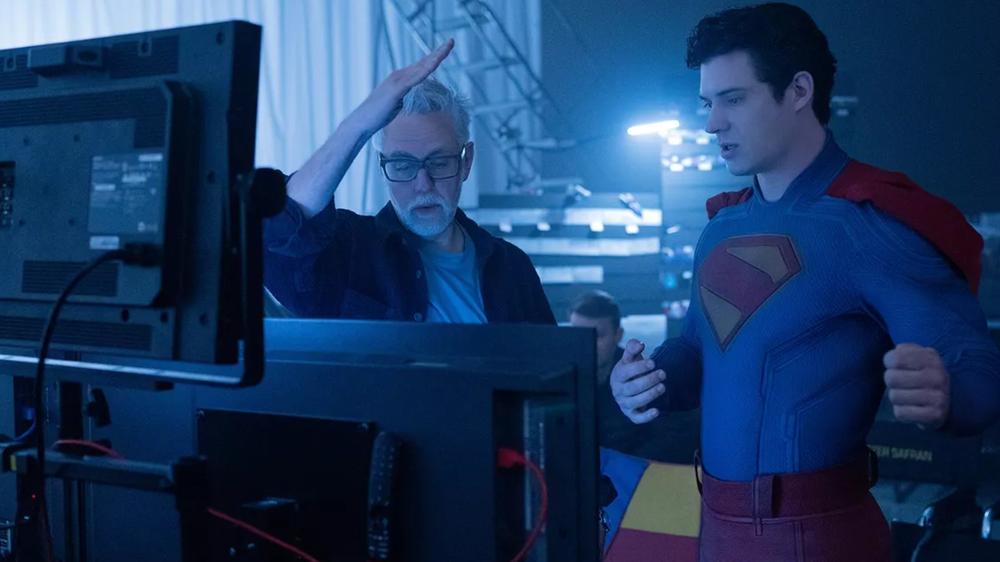James Gunn’s recent Superman movie and upcoming Peacemaker Season 2 is doing one thing very similar to what’s happening in Noah Hawley’s Alien: Earth.
On the surface, the DC movies and TV shows are quite different to what’s going down in Alien: Earth, being bright superhero stories rather than dark and dystopian horror.
But there is some overlap, through androids, aliens, super-powered beings, and the future of Planet Earth being at stake.
There’s also one plot detail through which they are doing much the same thing, as both franchises try to reflect what’s happening in our world.
Corporations are more powerful than governments in Alien: Earth and the DCU
In both Alien Earth and the DC Universe, corporations have become so powerful that they are now supercedeing governments.
In Alien: Earth, there are five corporations vying for power: Weyland-Yutani, Lynch, Dynamic, Threshold, and the newest superpower, Prodigy Corp.
Weyland-Yutani is the overarching villain of the alien franchise, through the company’s efforts to obtain the Xenomoprh and turn it into a weapon, no matter what the human cost.
They’re doing dastardly Weyland-Yutani things in Alien: Earth, which brings them into conflict with Prodigy, whose young trillionaire owner Boy Kavalier has his sights set on more than just global domination.
At the start of Alien: Earth, we learn that these conglomerates are trying to achieve immortality through the creation of cyborgs, synths, and Prodigy’s latest invention, hybrids. “Which technology prevails,” read the onscreen words, “will determine what corporation rules the universe.”
Something similar is happening in the DC Universe, as mastermind James Gunn explains in an interview with Interview:
“I think that we’re reaching a point in the DCU where there’s three factions. There’s the Metahumans, the governments, and then the corporations. And the corporations are equally important. There’s Luthor Corp, there’s Lord Tech and Stagg Industries and Wayne Enterprises, which are the four big companies that are vying for another type of domination.”
Gunn adds that they are more amoral than evil, and when asked if that can be said of Luthor Corp, says: “The corporations in themselves aren’t evil. Corporations are amoral. I guess governments are amoral too. But it’s really more dependent on the morality of the figurehead.
“In this case, Lex Luthor’s a pretty bad guy, although his corporation has done some great things… he was considered the greatest guy in the world a few years ago, even though there were Metahumans, and then this guy with dimples and a glint in his eye in a silly costume came in and made him feel like sh*t, so he’s been sort of obsessed with him ever since and has gone evil.
“I don’t think Lord Tech is the same. It’s run by Maxwell Lord, who we meet in the first episode of Peacemaker. He’s not the greatest guy in the world, but as far as billionaires go, he’s probably more on the right side of things than Lex Luthor.”
As for why both stories have decided to tread that path, Alien: Earth creator and showrunner Noah Hawley says for his show, it’s mostly about predicting what’s coming down the pipe.
“Anytime you’re asked to tell a story about the future, you have to start thinking, ‘What is the future gonna be like?’ I just tried to think one or two steps ahead,” he tells Yahoo. “Is it realistic that billionaires will become trillionaires? Is it realistic to think the corporations are gonna gain more power and not less, and realistic to think that there is this natural tendency toward monopoly that is a product of the way the capital works in our world?”
The answer to all those questions – at least according to James Gunn’s DC and Noah Hawley’s Alien – appears to be a resounding YES.
For more about the sci-fi show, here’s why Alien: Earth could be Alien’s Andor, how the show might have stolen Severance’s thunder, plus details of the terrifying eye midge.

 Where is “You” stalker Christopher Thomas? Update on Stalking Samantha: 13 Years of Terror
Where is “You” stalker Christopher Thomas? Update on Stalking Samantha: 13 Years of Terror